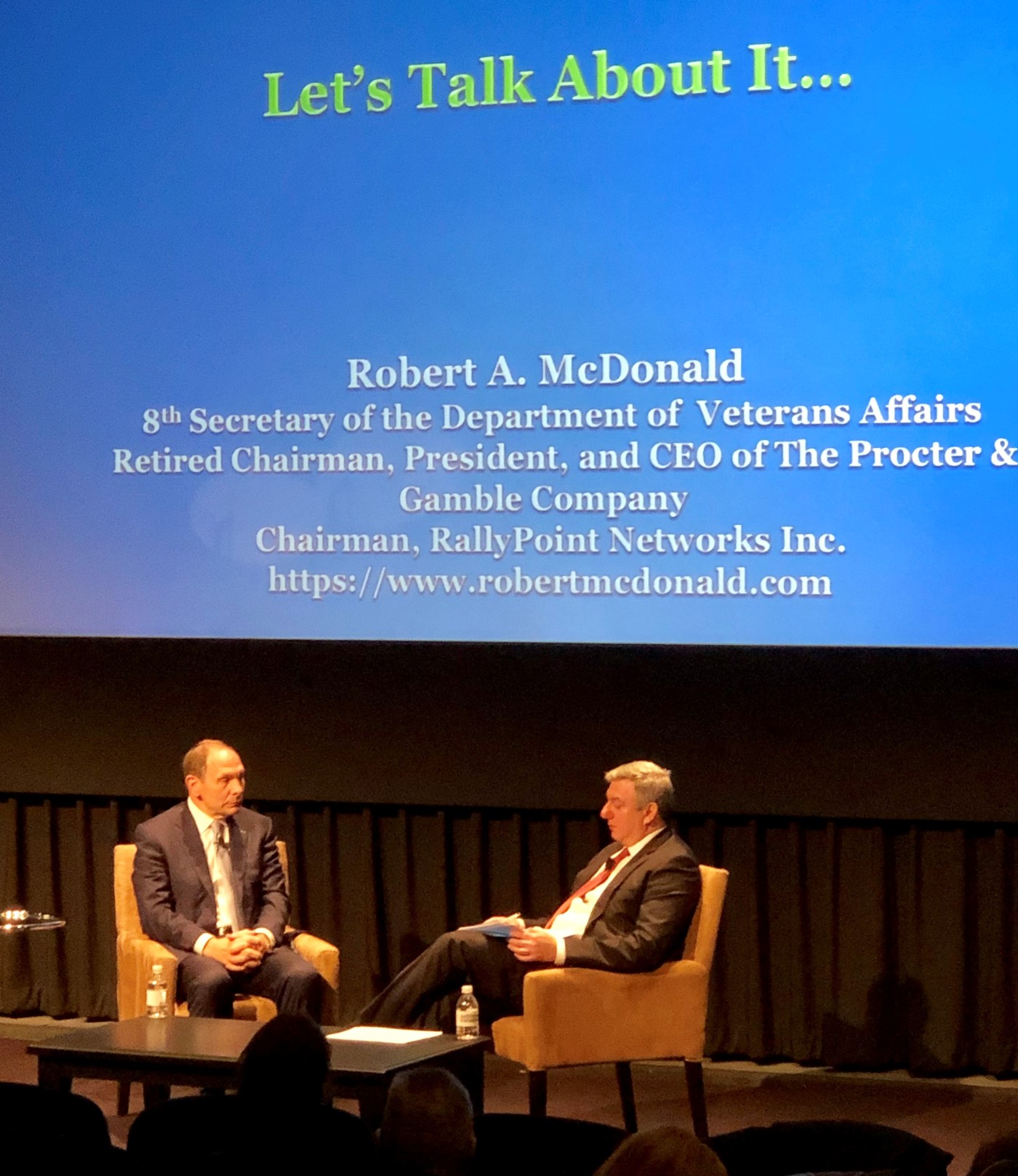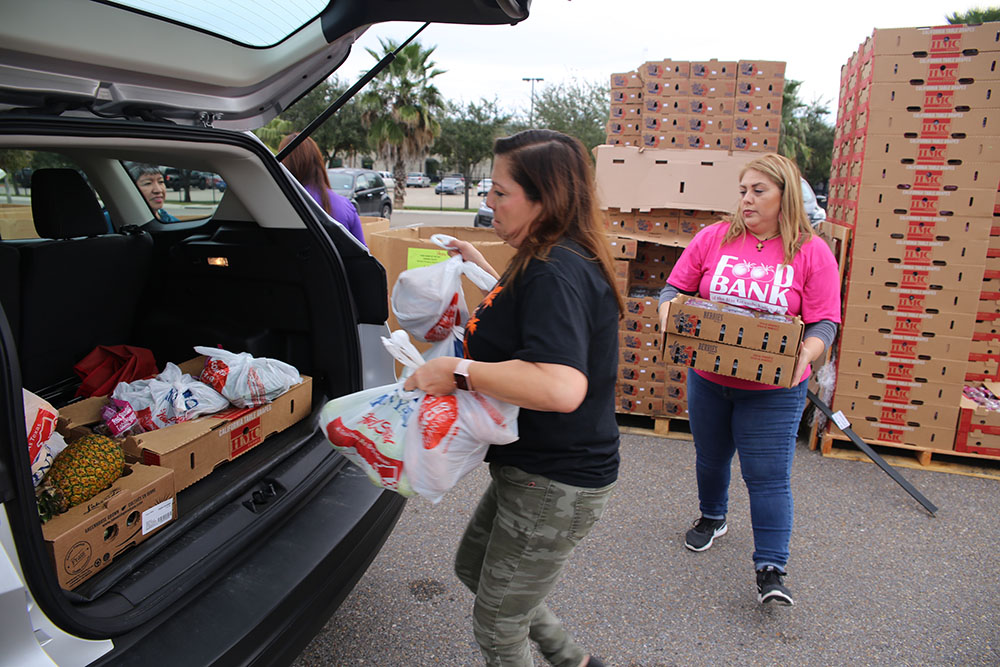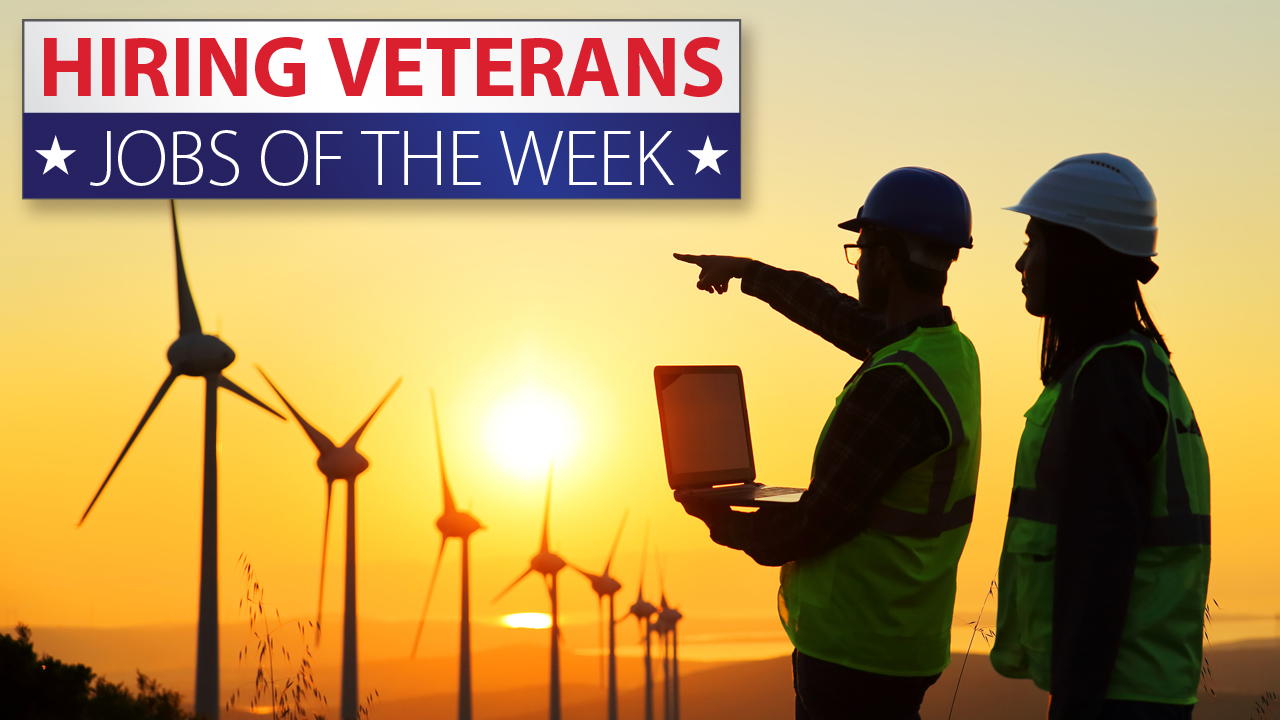
Former VA Secretary Bob McDonald gives his keynote address at the New York State Health Foundation Veterans health conference earlier this month.
The New York State Health Foundation (NYSHealth) hosted a Veterans health conference that addressed the question, “Can the VA and community-based care coexist?” And in a word, yes, they can.
In a keynote address presented by former U.S. Secretary of Veterans Affairs, the Honorable Robert A. McDonald, this and other topics were covered as part of the May 14th conference held at the New York Institute of Technology on Manhattan’s Upper West Side.
The conference opened with David Sandman, president and CEO of the NYSHealth Foundation, on the nature and purpose of the foundation as well as what conference participants might expect from the remainder of the agenda. NYSHealth is a private, statewide foundation dedicated to improving the health of all New Yorkers, especially the most vulnerable–many of whom are among 800,000 plus NY Veterans.
During his keynote address, McDonald covered a number of topics of interest to Veterans, families, caregivers and survivors, and set the stage not only for his question and answer period, but also for the follow-on panel discussions.
McDonald noted, “Community-based care can be a shock absorber to the peaks and valleys of VA coverage.”
McDonald also pointed out VA is the nation’s largest educator of doctors and the number one employer of nurses, but there are also unique areas of research and development that only the VA has the capacity and motivation to pursue.
Two panel discussions covered a myriad of Veteran-centric topics but from two very different, yet equally important, perspectives. The first of these panels was entitled, “Straight From the Source: Veterans’ Experiences Using VA and Private Care.” This panel was moderated by Derek Coy, Veterans’ Health Officer, NYSHealth and Marine Corps Veteran. Panelists included Roger Musso, a local leader of Veterans Organize CNY and co-host of the podcast “2 Vets Upstate”; Amuradha Bhagwati, founder of the Service Women’s Action Network and author of Unbecoming: A Memoir of Disobedience; and Molly Pearl, Student Veteran Advisor, Baruch College.

Speakers during one of the panel discussions held at the New York State Health Foundation conference.
This first panel served as the perfect bridge between McDonald’s keynote and the final panel. The Veterans’ perspective segued nicely between the high-level, strategic vision of a former secretary and the view from both VA and community-based health care providers.
One panelist, Amuradha Bhagwati, offered an important insight as a woman Veteran, that seeking personal safety first when visiting a hospital sometimes felt like a challenge. She also shared a personal experience of taking a non-Veteran female friend to a medical appointment with her, and her friend noted, too, that the environment was not as comfortable to female Veterans as it most likely was to their male counterparts.
The final panel, “One Team, One Fight: The Public and Private Providers That Care for Our Returning Veterans,” was moderated by Jennifer Steinhauer, Washington correspondent focusing on Veteran affairs at The New York Times. Panelists included Joe Quinn, executive director, The Headstrong Project; Juan Serrano, director, Military and Veterans Liaison Services, Northwell Health; and Martina A. Parauda, director, VA New York Harbor Healthcare System; all shared their perspectives on current challenges and future opportunities of VA and community-based care working together.
Among the wide-ranging topics covered by the final panel was an informative discussion from Martina Parauda on the rollout of the MISSION Act, as well as its timelines, how it differs from Choice, and how the MISSIONAct allows for more flexibility for urgent care.
Parauda also stressed the important role of VA health care providers and other VA professionals in assisting Veterans with the process of seeking community-based care under the MISSION Act.
These events are important venues for sharing information among the Veteran community, but they’re equally important for family members, caregivers, and survivors. For more information on VA and Community Care visit https://www.va.gov/communitycare.
Topics in this story
More Stories
The $100,000 Community Catalyst Challenge identifies trailblazing organizations and revolutionize how we engage with Veterans and their families.
The Social Security Administration is hoping to make applying for Supplemental Security Income (SSI) a whole lot easier, announcing it will start offering online, streamlined applications for some applicants.
This post contains jobs for the week of Dec. 16, 2024. Each week, we post relevant and timely listings as we receive them, and for the locations listed.







I live 46 miles from the closest VA. I was able to see my local cardiologist under the Choice program. My choice card was revoked because they put a Dr in a town 32 miles away without a cardiologist. Now, I have to travel 100 miles to Dallas VS to see a cardiologist. My question is, since they don’t have a cardiologist within the 40 mile range or less than 30 minute travel time can I use my local cardiologist?